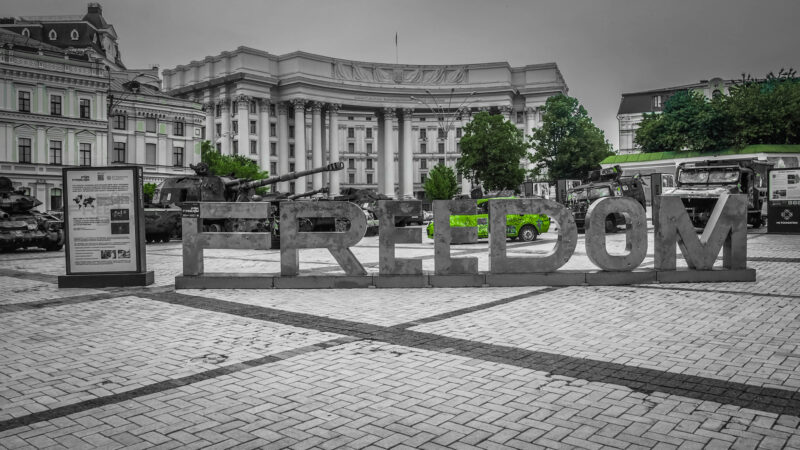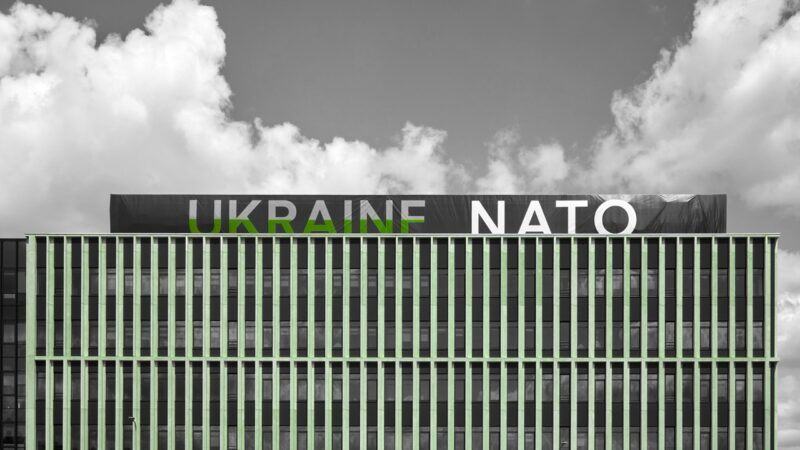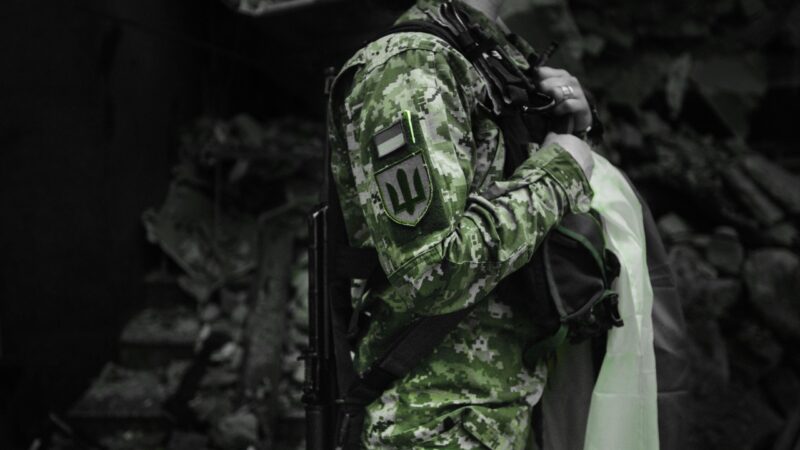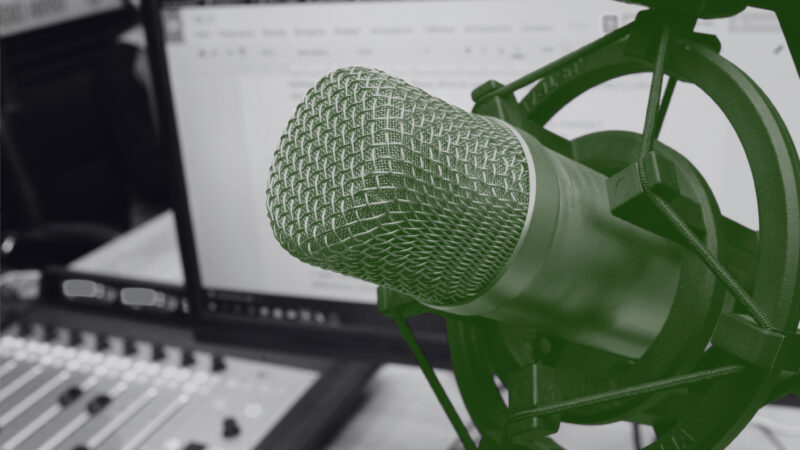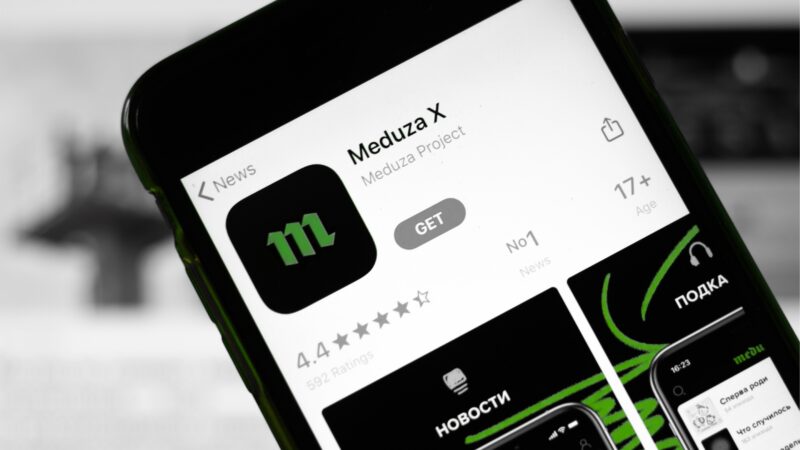Interview with Rajan Menon | Invasion of Ukraine has proved to be a disastrous decision
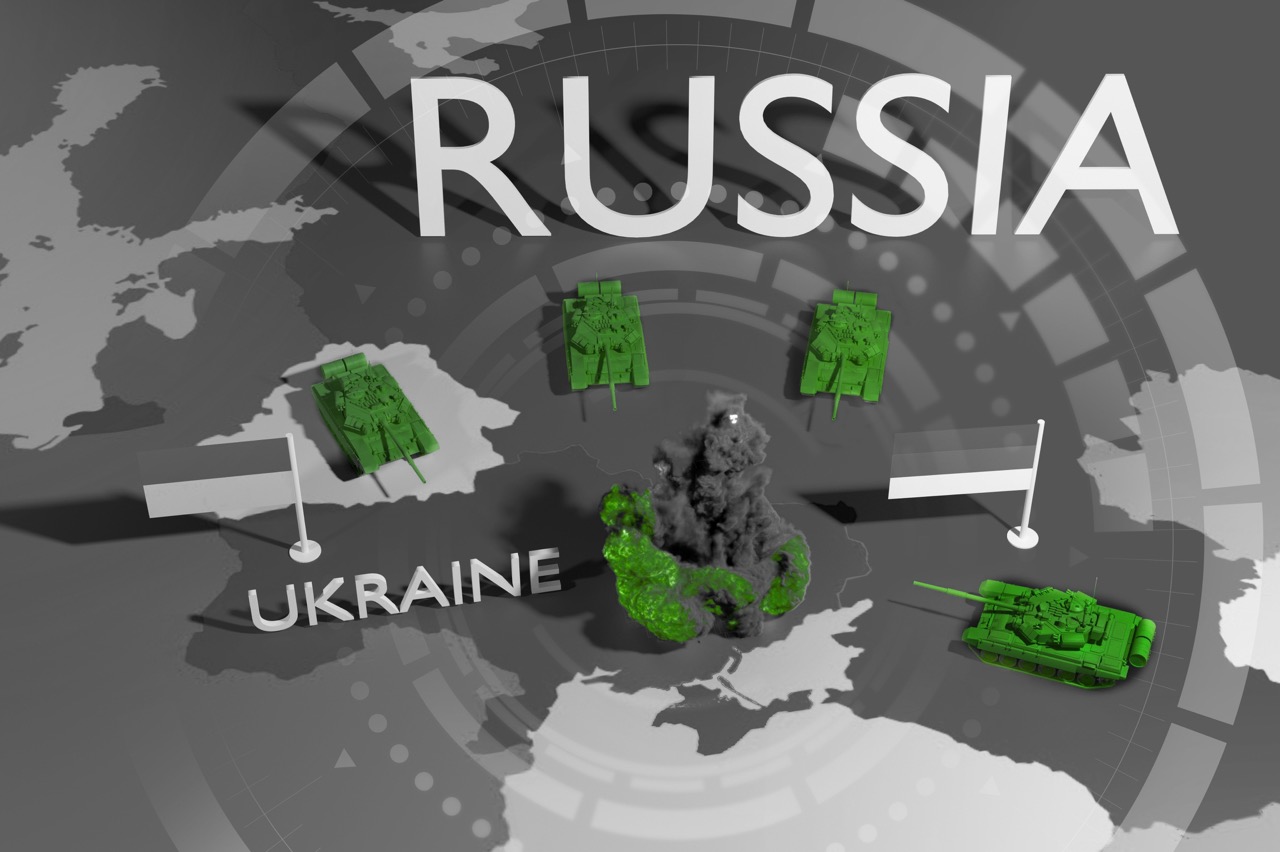
Oleksandr Pankieiev: This February marks ten years since the start of the Russo-Ukrainian war and two years since the start of its full-scale stage. Has this war made you fundamentally reconsider any notions or theoretical frameworks?
Rajan Menon: I’ve long believed that the US has been unwilling to allow any external power to establish itself in our hemisphere—the Western Hemisphere—since almost the founding of the country. But Russia has a certain proprietorial vision of the former Soviet states, especially Ukraine. I think that for historical, strategic, and cultural reasons, it’s very difficult for Russian nationalists—and Putin is one—to conceive of Ukraine as an independent country. So I’ve never doubted that Russia wants to keep Ukraine within its sphere.
In 2008, when NATO opened its door in principle for Ukraine to join the alliance, tensions about where Ukraine would “belong”—to the West, the East, or Russia—became much more controversial. At the time, I was not a proponent of NATO enlargement, because I understood that when alliances intrude on what great powers think, rightly or wrongly, is their sphere of influence, there will be some backlash.
Where my thinking has changed with my fellow realists is on the following point. On 24 February 2022, when Putin invaded Ukraine, there was no evidence that Ukraine was any closer to joining NATO in 2022 than in 2008. Thus, I simply do not find the argument that he had to invade Ukraine to stop it from joining NATO to be credible.
I think that NATO could not have mustered the unanimity required to admit Ukraine. NATO did a disservice to Ukraine by promising that the door was open and they would be admitted and then keeping them waiting for 14 years. It was not a very smart thing to do. They either should have said yes and moved quickly or just said no and clarified things. My departure from my previous view concerns the question of what triggered the invasion. I do not think it had to do with Ukraine’s prospects for joining NATO.
I also have an alternative theory that does not rest on evidence, but let me share it. Putin went into complete isolation during the COVID period. Very few people were able to see him. He demanded that documents be brought to him from the Russian archives. We know that he was reading widely about [the imperial rulers] Catherine II and Peter I. He was maybe thinking about his mortality, about his legacy. I think he wanted one of his legacies to be for Ukraine to be brought back into the Russian sphere. This is a hunch, but it’s the only alternative explanation I can arrive at as to why the full invasion happened when it happened. Frankly, I was stunned. I did not think he would fully invade a sovereign country, but he did, and he expected a quick victory.
Pankieiev: In one of your essays you called Russia’s war against Ukraine the war of surprises. I’m curious about the part that involves Ukraine. Why was Ukraine’s resistance to Russia’s aggression surprising to many experts in the West, particularly after Ukraine had two popular revolutions?
Menon: It did not surprise me that the Ukrainians would resist a Russian invasion. Generally, when you invade another people’s country, you’re challenging their right to exist, and there will be resistance. What I did not expect was how poor the Russian military preparations were and how hubristic they were in thinking they would march into Kyiv and install someone like Viktor Medvedchuk in place of Zelensky. And I underestimated the success with which Ukraine not only pushed the Russians from the gates of Kyiv by April but also cleared the Russian army from most of the north, including areas as far north as Chernihiv. So, the Ukrainians resisted—and in such a way that the Russian Army was turned back.
This resistance occurred successfully before Western arms started flowing into Ukraine in a major way. The Western assessment, for example from Mark Milley, then chairman of the American Joint Chiefs of Staff, was that Kyiv would be taken in 72 hours. He was not the only one saying this. To be honest with you, I thought the Russians would prevail because they had a massive advantage in everything. That’s why their failure somewhat surprised me. Although I never expected the Ukrainians just to capitulate. I didn’t expect, for example, [the Sudetenland,] Czechoslovakia, in 1938.
Pankieiev: One of Putin’s miscalculations was that when he started the full-scale invasion, he thought it would be easy to take control of the regions of Ukraine where many people speak Russian. His Federal Security Service spent hundreds of millions to infiltrate those regions with agents and gain local population support. But as we see now, controlling those occupied territories is challenging for him too. News from those regions indicates that resistance and partisan movements within those territories are consistent and growing.
Menon: Just a couple of thoughts on this. Despite the reputation that he’s now gained, Putin is not actually a person who takes big risks. The 2008 war against Georgia was not a risk. The 2015 intervention in Syria was not a risk, because he didn’t put ground troops down. Crimea 2014 was not a risk either —it is geographically close to Russia and Ukraine’s only Russian-majority province (two-thirds of the population and by some counts closer to three-fourths) with thousands of retired Soviet army personnel. I should also add Russia had a naval base on lease from Ukraine there at the time.
Putin’s invasion of Ukraine has proved to be a disastrous decision. But from his point of view, it wasn’t a risk, because all the intelligence that Russia had on the ground suggested the Ukrainians would welcome the Russian army, much like the Soviets thought the Afghans would welcome them in 1979. One of the reasons they assembled a small force relative to Ukraine’s size was that they expected a quick victory. I have friends in the Ukrainian military who tell me that when they looked inside Russia’s destroyed tanks and armoured personnel carriers, they found parade uniforms. Rumor had it that a few days before the start of the full-scale invasion, they even called Kyiv’s swanky restaurants to make reservations to celebrate their quick capture of the city. There’s no question that they were shocked at Ukraine’s resistance.
Regarding Russophone Ukraine, this is a highly complex question, and many misunderstandings exist in the West about it. If you look at, for example, the election that Yanukovych won, the election results are pretty clear that the Party of the Regions did much better in the east and south than elsewhere. But the idea that there is a split Ukraine is vastly overplayed.
I’ve been to Ukraine four times since the full-scale invasion began. I just came back last December. I’ve been there many times before. I don’t speak Ukrainian and have never presented myself as a Ukrainian expert. But I do know that I have talked to Ukrainian soldiers on the front lines in the east and in the south who spoke to me in Russian. I thought they were speaking to me in Russian because I don’t know Ukrainian, but then I noticed that they were speaking to each other in Russian, yet fighting the Russian army. This idea that everybody in the east and the south is pro-Russian and waiting to be liberated is a myth, one that Putin believed and wanted us to believe.
And finally, which parts of Ukraine have been devastated the most by the Russian invasion? It’s the very areas that Putin claims he is the saviour of! It’s a very strange thing, but I think he fell victim to this notion of being a saviour.
I sometimes tell friends, only partly joking, that in a weird way, Putin has been unwittingly, that is, accidentally, one of the main contributors to modern Ukrainian nationalism. He has reformed and reframed a Ukrainian identity that is stronger than before. Let’s assume that the war ends—now, I’m not predicting this, especially because American aid is now in doubt—with Russia retaining some proportion of Ukraine’s territory. Whatever remains of Ukraine, and quite a bit will remain, will irrevocably lean Westward. Young Ukrainians will all learn English or European languages, with their entire outlook toward the West. In that sense, no matter the military outcome of the war, Putin has lost Ukraine. There’s not going to be a Ukraine heading toward Russia. The defining characteristic of Ukrainian nationalism will be opposition to Russia.
Pankieiev: In your other essay, you say that it’s time for Europe to get serious about its own defence. And we know why it’s time. In the US, Trump’s election is becoming a possible reality. What is the situation with Ukraine’s security framework in this environment?
Menon: Trump has won the Iowa caucuses, he’s won New Hampshire, and he will likely beat Nikki Haley handily in her own state, South Carolina. Trump’s nomination is almost unstoppable. There is no question that the Republican Party, or large sections of it, are in his control. I could be wrong, but I don’t think Congress will vote on the proposed military aid bill, where the border issue and Ukraine are tied together, until they know who’s going to be the president. That’s because the Republicans don’t want to take a step without Trump.
We’re talking about $40 billion or so of military assistance. Ukraine will fight on even if that bill doesn’t deliver the assistance, but its ability to fight will be significantly diminished. It doesn’t matter how brave Ukrainians are or how good their generals like Zaluzhny and Syrsky are when you need artillery, armour, and air support to fight the Russians. If the aid doesn’t come through, it’s going to be a terrible thing.
And for all the talk that Putin’s sending out feelers for negotiation, he’s simply trying to play with the political climate. He won’t make any serious decision on the war until he sees who will be the president in November. I hope it isn’t true, but I think it will be Trump. I’d be delighted to be proven wrong. Because Trump’s election is not only bad for Ukraine, it’s terrible for the United States.
What does Trump’s election mean for Europe? One can make the case that the future of Ukraine matters to the United States, but it matters much more to Europe, especially to the eastern flank of the EU. For example, despite all of the historic tensions between Poland and Ukraine, Poland has now been one of Ukraine’s biggest supporters. If Russia dominates Ukraine, Russia becomes a neighbour of Poland. The same is true of Finland; they have a long border with Russia.
The problem is that if the United States aid does dry up and is still not 100% certain, Europe can only partially replace the United States as a supplier. The US provides more military aid (not economic aid) than all the European countries. Europe has to do some severe calculations on ramping up defence expenditure and boosting military industries, but it may not be able to do that in time. I think the lesson is that Europe’s long dependence on the United States gave it the luxury of engaging in some form of military minimalism. If the US decides it is going to stop supporting Ukraine, Europe has a big decision to make. Does it achieve more strategic autonomy? I don’t mean outside NATO necessarily; I don’t mean that the US and Europe should stop being partners. But within NATO there has to be a much different division of labour, and Europe has to do more. Europe has the resources and technology for it.
Pankieiev: All wars end sooner or later. For Ukraine, it is crucial not only to end this war, but also to make sure that it won’t be repeated again. What security frameworks are available for Ukraine now? And what are their pros and cons?
Menon: The ideal scenario for Ukrainians is to end the war by regaining all its territories back to the 2014 lines and by joining NATO. I understand that desire; if I were Ukrainian, I would want the same thing. There are two things about this. Despite the invasion, I’m still not convinced that NATO will achieve the unanimity it requires to admit Ukraine. Now, you might say, “This is different between 2008 and 2022, because Russia has now shown that it’s capable of invading Ukraine.” But you could turn that argument on its head and say, “Well, the lesson that the Europeans have learned is that Russia could actually invade Ukraine and Ukraine would invoke Article V of NATO’s 1949 founding treaty, and Europe would be at war with Russia.” Plus, you have people like Robert Fico in Slovakia and Viktor Orbán in Hungary. I’m not sure exactly what the Germans and the French feel. That’s why I think that the question of NATO membership for Ukraine is not necessarily a done deal, but I understand why my Ukrainian friends, who don’t like to be told this because it’s news that they don’t want to hear.
So, what does that mean? It means either a security guarantee for Ukraine by a collection of other powers (not necessarily all from Europe) or a security guarantee by some subset of European NATO members acting independently: Poland, Finland and others. Or it means that Ukraine opts for armed neutrality but reserves the right to train its forces and equip itself from any source it chooses, without restriction; of course, all those sources would be from the West.
And from this war I have learned two things. First, the Ukrainian army has a lot of morale, has outstanding generals, and has learned very quickly how to fight what was supposed to be the world’s only other military superpower. I’ve also learned that the Russian army was different from what we thought it was. If you look at the battles of Avdiivka or Vuhledar, the Russians suffered enormous losses.
As an American, it’s easy for me to say that Ukraine will be fine with armed neutrality. I understand entirely why Ukrainians wouldn’t be willing to take that risk and why they believe that NATO is the only guarantee that works. I’m merely pointing out that it’s not clear to me that even after the Russian invasion, the membership of Ukrainians in NATO will be signed, sealed, delivered, and tied up in a nice ribbon. Those are the alternative possibilities.
Pankieiev: But what about how the West actually wants Ukraine to end the war?
The West will be comfortable going back to the lines of 24 February 2022. When it comes to retaking Crimea, I expect some more ambivalence. The West is trying to balance two things. On the one hand, it is supporting Ukraine, but not to the point where Western weapons can be used to strike Russian territory. On the other hand, it is up to reducing the prospects of escalation.
I think escalation is not as big a danger as generally believed. But what I think doesn’t matter. It’s what people like Jake Sullivan, Biden, Blinken, and Defense Secretary Austin think. It seems to me that they’re very cognizant of this risk. They believe that if Ukraine attempts to [liberate] Crimea, NATO will cross a threshold that makes escalation more likely. So, they are less keen on returning to the 2014 lines than the 2022 lines. Now, has anybody said this? Is there a document? Of course they won’t say it. You can’t be supporting Ukraine and saying that “our objective is only to return to the February 2022 lines”—why give Putin that gift? But I sense that that is what is going on in the minds of Western policymakers.
Pankieiev: What surprises are you expecting from this war?
Menon: Most people think that the Russians, having invaded Ukraine one time, will take what in Russian is called a передышка, a deep breath, and then invade again. Because they ran into resistance they didn’t expect and lost their best equipment, any Russian leader, Putin included, will think long and hard before trying this again. Because one thing is clear: Ukraine is a formidable nation capable of defending itself. Whether it belongs to NATO or not, Ukraine’s future defence ties will be in the West. Ukraine’s going to have a Western-trained army. Its army is already substantially Western in orientation. It will have much more Western equipment. The proportion of Russian-Soviet equipment will diminish to almost nothing in 20 years. And so Ukraine will be an even tougher nut to crack. I don’t know if this qualifies as a surprise, but my surprising conclusion is that while most people think it’s only a matter of time before the Russians try again, I’m not so sure.
The other surprise is how wrong we were in how we judged Russia’s capacity to fight. Our approaches to the assessment of Russia as a center and military power will have to be rethought. I think it’s been sobering not only for us but also for them. To be honest with you, I’m not entirely surprised by this, because even back in the Soviet days, I raised questions about whether the Soviet Army was indeed as powerful as it appeared. I’ve also argued that Russia is not comparable to China or the United States, because it has a much smaller GDP. It primarily exports oil. If you look in your home or your office, how many products do you find that are Russian-made? I bet there are none. You find Korean automobiles, Japanese automobiles, Chinese equipment, etc., but you don’t find Russian equipment. That is not the hallmark of an ascendant power.
And Russia has a growth problem. Oil and gas, which are its mainstays, will eventually, slowly be replaced by alternative technologies. So the question is, what will be their main export? I doubt that they’re going to be exporting nanotechnology to Western markets. When I say this, people suggest I’m short-selling the Russians, insulting them or denigrating them. No, I’m not. I’m just saying to look around your house and your friends’ houses. And tell me, do you see automobiles, washing machines, computers, coffee makers, or anything else from Russia? And the question is: why not?
